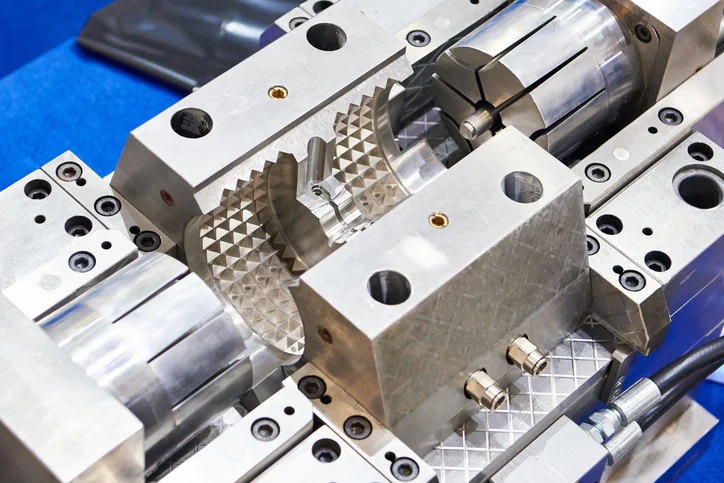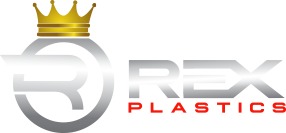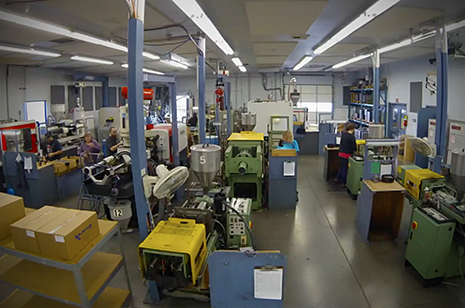- BY nwmcadmin
- POSTED IN Injection Molding and Price, Plastic Injection Molding
- WITH 0 COMMENTS
- PERMALINK
- STANDARD POST TYPE

Injection mold tooling is a critical component in the production of high-volume, complex plastic parts. While the cost of tooling can be significant, understanding the intricacies of the process and the factors influencing costs can help businesses make informed decisions. In this blog, we will show you the details of injection mold tooling, its processes, and why it comes with a high price tag.
What is injection mold tooling?
Injection mold tooling, often referred to simply as tooling, is the mold that shapes molten plastic resins into desired parts. The tooling process involves creating a metal mold from materials like steel or aluminum. Ultimately, the design of the mold’s core and cavity mirror the negative shape of the part produced.
What is the process of tooling molding?
The tooling process begins with designing the mold based on the part’s specifications. This mold is then machined out of a block of metal, typically steel or aluminum. Afterward, careful crafting ensures the core and cavity of the mold are precise and accurate. Once the mold is ready, it goes into an injection molding machine. Here’s a step-by-step breakdown of the process:
- Design and Machining: The mold is designed and machined to form the negative shape of the part.
- Mold Setup: The mold is installed in the injection molding machine.
- Injection: Molten plastic is injected into the mold under high pressure.
- Cooling: The plastic cools and solidifies within the mold.
- Ejection: The mold opens, and the finished part ejects.
- Repeat: Finally, the process repeats to produce the desired quantity of parts.
What is the difference between tooling and mold?
While the terms “tooling” and “mold” are often used interchangeably, they have subtle differences. Tooling refers to the entire process and all components involved in creating the mold, including jigs, fixtures, and other equipment. The mold, on the other hand, is the specific part of the tooling that shapes the plastic.
What is the difference between hard tooling and soft tooling?
Injection molding tooling can be categorized into hard tooling and soft tooling, each with its own set of advantages and limitations.
Hard Tooling
Hard tooling is typically made from hardened tool steel and is designed for long-term use, capable of producing hundreds of thousands to millions of parts. The benefits of hard tooling include:
- Durability: Hard tooling can withstand high temperatures and pressures, ensuring longevity.
- Precision: Steel molds provide high precision and tight tolerances.
- Cost-Effectiveness: Although the initial cost is high, hard tooling is cost-effective for large production runs.
Soft Tooling
Soft tooling, often made from aluminum, is used for lower-volume production or prototyping. Its characteristics include:
- Lower Initial Cost: Soft tooling is less expensive to produce initially.
- Flexibility: Easier to modify or repair compared to hard tooling.
- Limited Lifespan: Soft tooling is typically for short runs or prototypes as it wears out faster.
Why is injection mold tooling so expensive?
Several factors contribute to the high injection molding tooling cost:
- Material Costs: High-quality materials like hardened steel are expensive but necessary for producing durable molds.
- Precision Engineering: The process of designing and machining a mold to exact specifications is complex and requires skilled labor.
- Customization: Each mold is custom-made for specific parts, which increases the cost.
- Longevity and Maintenance: High-quality molds are built to last and require maintenance, adding to the overall expense.
- Complexity of Design: More complex part designs increase the time and effort needed to create the mold, driving up costs.
Contact Rex Plastics for a Quote Today
Injection mold tooling is a crucial investment for producing high-quality plastic parts. Therefore, understanding the intricacies of the process and the factors that influence tooling costs can help businesses make informed decisions. While the initial investment may be high, the long-term benefits of durable and precise molds make it a cost-effective solution for mass production.
At Rex Plastics, we have over 50 years of experience in the injection molding industry and offer a lifetime guarantee on our injection molds. Whether you are in the early stages of your project or ready to begin production, our team can help you turn your ideas into reality. Contact us today for a quote, and let us help you with all your injection molding needs.


